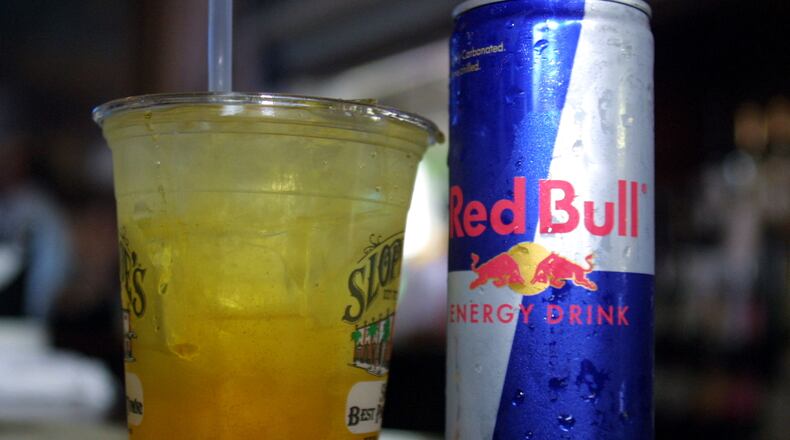There were reports Wednesday that a woman in England consumed such a large amount of an energy drink that when she became ill doctors believed she was a chronic alcoholic because her liver was found to be twice its normal size.
Mary Allwood, 26, reportedly drank up to 20 cans of the energy drink Red Bull a day, or roughly the equivalent of 16 Mars candy bars worth of sugar and the same amount of caffeine that's found in 17 cups of coffee.
While drinking 20 cans of an energy drink a day is unusual, not to mention expensive, questions as to the safety of the drinks have been swirling since the beverages first hit store shelves.
Obviously 20 cans a day isn’t the way to go, but what is safe and what is unsafe when it comes to the drinks?
Here is a look at what the drinks contain and what those ingredients do once you drink them.
Caffeine
Energy drinks rely on caffeine as a main ingredient. Caffeine is a stimulant that boosts your heart rate and blood pressure. Within minutes of drinking it, you begin to feel more alert and are better able to concentrate.
The amount of caffeine in the drinks vary, but often there’s more caffeine in an energy drink than in sodas or a cup of coffee or tea. There is no recommended safe level of caffeine a person should consume in a day, but large amounts can cause problems.
Sugars
The sugar content in energy drinks is high. If you have two or three drinks a day, you could consume four to five times the maximum daily amount of sugar recommended by the Food and Drug Administration.
Guarana
Guarana is a cocoa that contains caffeine. If it is in the energy drink, the caffeine content in guarana is likely not included under “caffeine” in the ingredients. So you can be getting more caffeine than you may realize.
Taurine
Taurine is an amino acid that regulates the water levels in a person’s body. It also helps regulate mineral levels. You get taurine when you eat meat or seafood, or drink milk, so you really don’t need the extra amounts you get in an energy drink. The effects of excessive taurine are probably not harmful, however.
Ginseng
Ginseng has been credited with boosting the immune system and boosting a person’s mood. There is only a small amount in most energy drinks, and no proof that that small amount does either of those things. Large amounts can have some serious side effects.
B vitamins
The same goes for the B vitamins. They could help engery levels, but not in the amounts seen in energy drinks.
Is it bad for you?
A study released in 2015 concluded that energy drinks could pose a risk to young people with underlying heart diseases. The report, published in the Canadian Journal of Cardiology, said the high levels of caffeine and sugar could cause some people who have heart issues to suffer from heart rhythm problems that could cause cardiac arrest.
Researchers suggested for teens:
- One can (250 mls) of an energy drink per day is safe for most healthy adolescents
- No energy drink consumption before or during sports practice
- Adolescents with heart issues should consult a cardiologist before drinking energy drinks
- Excessive energy drink consumption with alcohol or other drugs could produce adverse effects, including death
A study of adult consumption of energy drinks showed the same effect on adults with heart issues. It concluded that the drinks could lead to an abnormal heart rhythm when consumed in large amounts.
What does the FDA say?
In 2012, the FDA investigated reports of 13 deaths and 33 hospitalizations after consuming energy drinks. The agency looked for any link between energy drinks and conditions including heart attacks, convulsions and one case of a spontaneous abortion. At the conclusion of the investigation, the agency reported that, "There is no certainty that a reported adverse event can be attributed to a particular product or ingredient."
About the Author
The Latest
Featured


